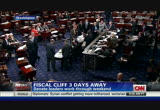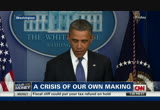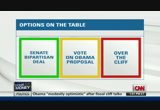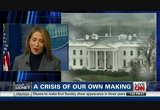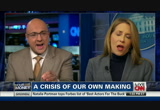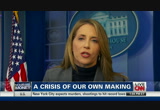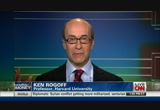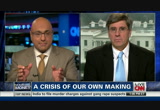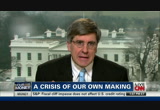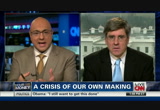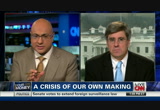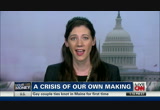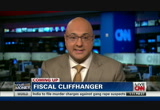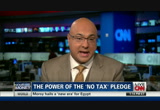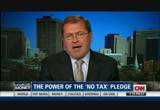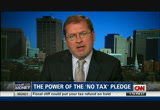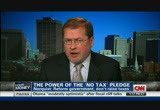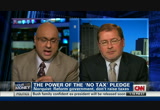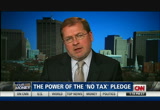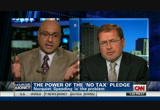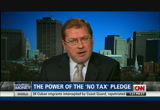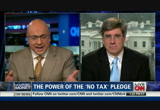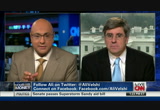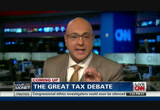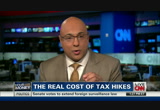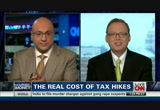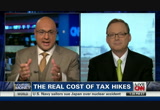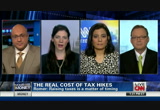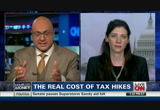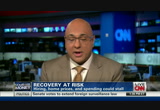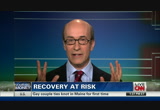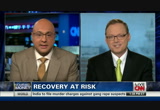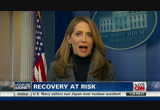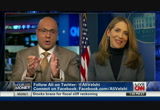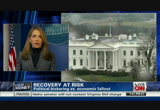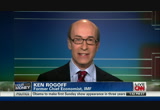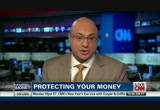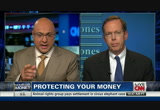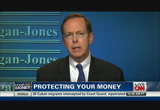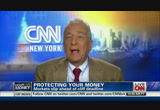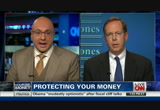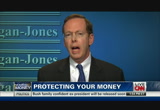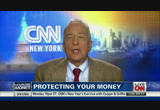tv Your Money CNN December 29, 2012 10:00am-11:00am PST
10:00 am
off that fiscal cliff. the deadline's tuesday. if the deal isn't reached, taxes will go up on just about everybody. and massive spending cuts will kick in. in india, the young woman gang-raped on a new delhi bus is dead. doctors say she died peacefully at that singapore hospital where she was being treated. authorities plan to add murder charges against the six suspects arrested in that rape. the charges will be filed thursday. angry protesters have been demanding justice and more protection for women. and police expect more demonstrations in the days to come. four people are dead after a plane crashed at the moscow airport. four others were injured. eight people were on board, all of them crew members when the plane overshot the runway. don't go away. at 2:00 p.m. eastern, the top stories of the day including that growing outrage over russia's adoption ban. hundreds of americans are frantic after being told their adoptions are not going to go through. we'll also take a look back at the year in politics and the fierce battles the unexpected alliances and of course the best
10:01 am
moments of the presidential campai campaign. plus the most intriguing people of 2012. find out who they are and why they landed on the list. "your money" starts right now. martin, thank you very much. what a colossal waste of time. down to the wire, waiting for breaking news out of washington on a matter that has no business being breaking news. this was an entirely anticipated crisis, one that is completely of washington's creation, even at this late moment, washington still ready to gamble with your economic future instead of conceding some ground to conclude a deal that possibly saves it. i'm ali velshi. this is "your money," a battle of ideological wills in washington as america moves dangerously close to a fiscal cliff. >> we're now at the last minute. and the american people are not going to have any patience for a politically self-inflicted wound to our economy. not right now.
10:02 am
>> alas, this is how we do things now, create economic storms then look to provide an umbrella at the last possible second. we avert disaster but move no closer to solving our long-term economic problems. after a moment of spiritual clarity on friday afternoon, harry reid is working on a bipartisan deal ostensibly with his republican adversary mitch mcconnell. >> -- engaged in discussions, the majority leader and myself and the white house, in the hopes that we can come forward as early as sunday and have a recommendation that i can make to my conference and the majority leader can make to his conference. >> well, if the senate manages to reach a compromise, the hope is that the house would follow. that's option one. the green one. option two is less certain. president obama reportedly challenged congressional leaders from both parties on friday to come up with a deal better than the one he proposed.
10:03 am
the center piece of which is that the top marginal tax rate will increase for those earning $250,000 or more from 35% to 39.6%. that's only on the amount earned above that threshold. obama has told congress either they come up with something better or put his proposal to a vote. he's betting even those who hate the idea of a tax increase on the rich will hate causing america to go over the fiscal cliff even more. okay. option three. that's the red box. that's one where america goes over the fiscal cliff. jessica yellin is cnn's chief white house correspondent. peer into the crystal ball for us, jessica. which of these scenarios is most likely? >> well, ali, i think that after yesterday it's slightly more likely that there will be some sort of agreement. that doesn't mean that there are a whole bunch of optimists running around d.c. saying it's going to get resolved. but what you describe sod well as a moment of spiritual clarity yesterday really did lead some
10:04 am
to think that senators reid and mcconnell have done this before. they are two experts at getting together and crafting something that resolves things at the 11th hour. and if any two men with can do it, it is these two men. right now their staffs are working on negotiating that agreement. and so there's some hope that that could get done. i'd say more today than there was when we woke up yesterday morning, ali. >> all right, jessica. you called it jujitsu yesterday. >> yes. >> this is a tough position. the president has taken a tough line. he says i've got a proposal. you don't appear to like it. but you haven't come up with something else thatou can put to a vote. can you explain to our viewer what is this means when he says you can't come up with something better, put this to a vote? why is that complicated? >> what he's saying effectively is the message he campaigned on
10:05 am
was raise taxes for people making $250,000 and more, leave tax where is they are for everyone else. he's just calling on congress to put that very basic idea to a vote, maybe some other components, but basically that to a vote. the reason that's a political win for him because he believes that there are the votes for that to pass. but it will never get to a vote, ali, because that would mean no one in the senate -- i mean procedurally no one in the senate would object. it would have to get no one filibustering it. that's not going to happen. then it would have to get onto the house floor. why would speaker boehner put it on the house floor? that's not in his interest. no republicans want that. so it's never going to happen politically. so when he calls for it to happen, he's simply telling the american public look -- these republicans are obstructing an idea. it gives him the potential to eventually make the argument that republicans obstruct an idea that he thinks could win and republicans will say well that's ridiculous because we
10:06 am
object to it on principle and that's why we're objecting to it procedurally. does that make sense? >> jessica, stay there. thanks for your explanation. i want to bring in the rest of our panel. ken rogoff, harvard university, former chief economist at the international monetary fund, annie lowry an economic policy reporter for "the new york times." steven moore, editorial writer for "the wall street journal." ken, you tear financial crisis guru here. forget the politics. just give us the math. if washington fails to avert the cliff, the worst-case scenario will be the combination of tax hikes and spending cuts. what does that do to our economy? >> well, if they don't come to a deal and then sit there all next year and don't come to a deal, we will go back into recession. it will be very, very ugly. and the united states is one of the few bright spots in the world and it will be ugly to have the whole world go into recession. but i don't think that's likely. i think if we pass for a month then they'll eventually pass
10:07 am
something. but it shows the dysfunction in washington of not being able to pass anything. by the way, ali, the debt ceiling's coming up. they're not agreeing on that. so even if they agree on this, then in a month or two they're going to be in the same position on the debt ceiling. >> and our debt ceiling actually comes to a head on monday, but the department of the treasury, treasury secretary says like they did last time they can move things around and probably keep us going for another few weeks. steven moore, for our viewers who don't know you, you are a hard-boiled anti-tax guy. you are a co-founder of the club for growth. you sort of subscribe to that grover norquist idea that don't raise taxes. option number two in the scenario that i put forward, republicans end up being dared to vote against the president's plan. again, forget the politics. forget what jessica said about procedurally not getting there. the point president obama is trying to make is he wants everybody to vote one way or the other, up or down. the idea is republicans will be forced to vote one way or the
10:08 am
other on extending the push tax cuts for people making below $250,000 a year. >> yeah. ? and by definition making taxes go up on those earning above that. would republicans be forced to vote for the president's plan to avoid being blamed for rates rising on most taxpayers and going over the fiscal cliff? >> well, a couple thing, ali. first of all, i think the outlines of that deal you just described are probably where they're headed, although i don't think that mitch mcconnell and harry reid -- i hear they're negotiating maybe a little higher income threshold, so maybe not $250,000, maybe $400,000 or $500,000. even the president put that on the table a couple weeks ago. i was pleased to hear jessica said she think wes ear inching towards an agreement. i don't want to go over this cliff. i think it would be a mistake politically and economically to do that. but i want to let your viewers know that this is not a fight about small things. it's a fight about big, big ideas, about what our
10:09 am
entitlement programs are going to look like, what is our tax system going to look like, how much are we going to spend on all these programs. these are deep ideological divisions between the two parties. i hate to see it come to the edge of this cliff, but the ideas here that we're fighting about are of major significance about the future of our country. >> but steven, you and i have discussed this for how long. i had hair when you and i started this discussion. >> no. >> ken rogoff had an afro when we started talking about this. that's my point. it's ridiculous that we are again here like we were for the debt ceiling, like we were for the government shutdown. it is ridiculous that we are here because we want to be having a big discussion. we have all the facts in front of us. we know that there are people like you kwhof a position on taxes. we know there are others who have positions on other things. and our democracy is supposed to allow us to somehow come to together, to convene, to deliberate and to evolve some sort of a compromise. what response -- what responsibility do you think
10:10 am
conservative republicans who have signed this pledge to grover norquist bear for us getting to where we are today? >> well, actually, let me defend grover for a second. >> sure. >> he actually has signed on to some kind of a deal. we're in a situation that if nothing happens taxes go up on everyone. so -- and then a guy like me doesn't want to see that happen obviously. look, i want to make one other point. even if we go over the so-called cliff, and i think cliff is a bad metaphor here, really kind of a slope. it's not like the world's going to come to an end january 1st or 2nd if we don't have an agreement. i agree with ken. i think sometime in the next two, three, four weeks they will come to a deal. so we're not going to see armageddon in my opinion in 2013. >> glovrover is on the show and asked him about that specific issue. he gave coverage to republicans to be able to go with john boehner's suggestion. there's severe dysfunction in washington, particular dysfunction in the republican house congress at the moment. but that's another issue we'll
10:11 am
discuss. let me bring annie lowry into this discussion. senior economic policy reporter at "the new york times." the debt ceiling, the fiscal cliff. we keep trying to solve storms of our own making. nothing being discussed this weekend as steven just made clear. any closer to solving our long-term issues? what we are in at the moment, the reason you are on tv with me right now is this is crisis management that washington is in right now. it doesn't make any sense. >> yeah. it doesn't. and i think that if you look even a month or two ago, folks were talking about starting a tax reform, clean up the code, freeing up money to invest in things like education. nobody's talking about that anymore. you know, right now they're really struggling to figure out what to do with the tax cuts. and, you know, they're not even talking about the sequester very much anymore, which would -- you know, the tax cuts, they would hurt immediately. and everybody's taxes are going up next year if you're a wage earner one way or another because of the payroll tax
10:12 am
holiday expiring. but there's a whole host of issues and they're not going to be able to deal with all of them. it's become very immediate and it looks like the small deal is going to leetch whole bunch of things for them to do next year. >> good point. we'll get to this more later in the show. the taxes are where all the political heat is, but the discussion is actually about the more important things, all of those cut, the structure of our government. we'll discuss this more, annie. steven mentioned his name. coming up, this man may be the most feared man in washington. >> if i went and became a tibetan monk on the top of some mountain somewhere, the american people would still -- they were against tax increases long before i was born. the whole tea party thing predates me. >> well, grover norquist has a point on the fiscal cliff showdown and why politicians will not back down from signing his anti-tax pledge. [ male announcer ] it's simple physics...
10:13 am
a body at rest tends to stay at rest... while a body in motion tends to stay in motion. stayingctive can actually ease arthritis symptoms. but if you have arthritis, staying active can be difficult. prescription celebrex can help relieve arthritis pain so your body can stay in motion. because just one 200mg celebrex a day can provide 24 hour relief for many with arthritis pain and inflammation. plus, in clinical studies, celebrex is proven to improve daily physical function so moving is easier.
10:14 am
celebrex can be taken with or without food. and it's not a narcotic. you and your doctor should balance the benefits with the risks. all prescription nsaids, like celebrex, ibuprofen, naproxen, and meloxicam have the same cardiovascular warning. they all may increase the chance of heart attack or stroke, which can lead to death. this chance increases if you have heart disease or risk factors such as high blood pressure or when nsaids are taken for long periods. nsaids, including celebrex, increase the chance of serious skin or allergic reactions or stomach and intestine problems, such as bleeding and ulcers, which can occur without warning and may cause death. patients also taking aspirin and the elderly are at increased risk for stomach bleeding and ulcers. do not take celebrex if you've had an asthma attack, hives, or other allergies to aspirin, nsaids or sulfonamides. get help right away if you have swelling of the face or throat, or trouble breathing. tell your doctor your medical history and find an arthritis treatment for you. visit celebrex.com and ask your doctor about celebrex. for a body in motion.
10:15 am
i get congested. but now, with zyrtec-d®, i have the proven allergy relief of zyrtec®, plus a powerful decongestant. zyrtec-d® lets me breath freer, so i can love the air. [ male announcer ] zyrtec-d®. behind the pharmacy counter. no prescription needed. the fiscal cliff is a battle of ideological wills. some americans feel strongly that increasing taxes on anybody hurts the economy. that's quite possible that's true. the central question is whether it will hurt all that much to raise income taxes a little bit on the highest part of the highest earners in the country. well, to push the country to the edge of a recession over this is quite irresponsible.
10:16 am
the increase in taxes will hardly affect the economy, but that's my opinion. and my opinion should count as much as anyone else's. the problem is that in washington right now one person's opinion carries disproportionate weight. that person is grover norquist, the head of americans for tax reforms. it's got a pledge that mostly republicans members of congress signed to say they won't raise taxes under any circumstances. i spoke to nor i didn't see after friday's developments and asked him about taxes and his almost religious belief that tax increases, any tax increase, is bad for the economy. >> we've seen that whenever you've raised the capital gains tax, the top marginal tax rates, but also tax increases distract from what the country needs to do. we need to deal with our runaway government spending. the government is spending too much money. tax increases are not part of cutting the budget. tax increases are what politicians do instead of reform the government. as long as tax increases are on the table, the politicians never even think about reforming
10:17 am
government. >> and i understand. you have been on this fight for a long time and you've been devoted to the whole idea of not seeing taxes increase anywhere. but what we're down to right now is largely a political battle over the increase in marginal tax rates based on what you earn. i understand there's a lot more to this puzzle, but on that front, because that's the one that gets most of the ink around here, whether people who earn more than $250,000 or $400,000 or $1 million should may-pay more tax. the point is that's not going to hurt the economy. that's all we're talking about. paying 4.6%, 8 points higher on your income over $250,000, empirically the evidence isn't there that that's going to hurt the any economy. >> well, it's going to take taxes from 35% up to 43.6% because you have to add both the obama care tax that's coming and the tax -- the disappearing bush tax increase. >> right. >> and this hits primarily, as you know, small business owners and people who file subchapter-s
10:18 am
corporations. >> not primarily. it hits some of those people. >> well, over half of all the small business income that gets -- ends up paying this higher rate, if you do it, and the last time we did this, more than two-thirds of the people who got hit were the subchapter-s corporation. i think it would have a very significant effect. but mostly the other effect it has is that we're not cutting spending because we're spending too much money. and that sends a very bad signal. if we're not going to do entitlement reform, because every time we talk about it obama says, no, let's raise taxes instead, now we're dealing with tens of trillions of dollars of unfunded liabilities that were not -- for four years obama's done nothing on entitlement reform. nothing, nothing, nothing, for four years. a lot of golf. nothing on entitlement reform. what has he done? chirped about raising taxes on rich people. raising taxes on rich people is what obama talks about instead
10:19 am
of doing his job. so it's -- there are two costs to this. one, if you take money out of savings and investment, which is what you're doing with this, it doesn't help, it reduces the incentives to save, invest, and work. and the other thing you do is you never get to reform government entitlements. >> that's not causal, though. >> it is, it is, absolutely. >> it's not. >> you live in new york. i live in d.c. >> yeah. >> washington. this is all causal. the reason he's talking about tax increases is to avoid the conversation and dealing with spending restraint. that's why obama does what he does. >> the reason i doubt that, grover, is because we've all done the math and we all absolutely agree on the math that you can't get out of the deficit hole we're in by taxing rich people, even if you tax them at 100%. everybody knows that. when republicans say we don't have a tax problem, we have a spending problem, the fact is we've got both and we can deal with that. let me ask you this.
10:20 am
you gave your bletszing ing bl proposal that john boehner put forward. so many congressional republicans are scared of voting for something that feels like, looks like, smells like a tax increase because they're worried your organization will come back to haunt them because you signed a pledge. you gave your blessing and they still couldn't get the votes on the floor. what's up with that? why did that not happen? a week ago i was hopeful we might have a deal. >> okay. because the pledge is not to me. it's to the american people. it's to the people of the state that any congressman or senator is from. they have to feel that they can go to their constituents and say i voted against all efforts to raise taxes. i argued having read the boehner plan, it was silent on the taxing people who make more than a million dollars, it made permanent as opposed to obama who wants to just protect you for a year, he made permanent the tax cuts for people who made less than $250,000 a year, actually a million dollars a year. and as a result, it was a giant
10:21 am
step towards protecting all taxpayers, and the republicans held the two tools they need to protect all taxpayers and to reform spending. and that's the debt ceiling increase where they can demand things in return for obama needing a debt ceiling increase, since he's planning on driving another $8 trillion the next decade, and the continuing resolution, because the democrats in the senate don't pass budgets anymore, we do a continuing resolution. those two tools can help you both cut spending and deal with further tax reform. those weren't given up. the budget -- you know, not everybody liked plan b. we didn't endorse it. but it didn't violate the pledge that republicans felt they could go. >> you gave them cover to be able to vote for it and say, look, grover's not mad at me. >> i'm terribly reasonable. >> well, you do come and talk to us about it, which we
10:22 am
appreciate. grover, here's the thing. you say it's not a pledge to you and to americans for tax reform, it's a pledge to stilts. but constituents don't have the money you have to go out and actually do something if somebody breaks that pledge. now, there are many congressmen who have done things wrong, they've said to their stilts they'll do something and their constituents throw them out of office if they don't do what they said. this is different because if you break this pledge to your constituents, grover norquist comes after you, not necessarily your constituents. >> well, george herbert walker bush, bush 41, broke the pledge. americans for tax reform didn't spend any money attacking him. bill clinton ran millions of dollars of ads attacking him for breaking his pledge. so since the pledge is a public piece of information, the press goes after you if you break the pledge, your local voters go after you, your democratic opponent calls you a fibber. the pledge is self-enforcing. if i went and became a tibetan monk on the top of some mountain
10:23 am
somewhere, the american people would still -- they were against tax increases long before i was born. the whole tea party thing predates me. so harry reid is -- misunderstands. the american people don't want taxes raised. they realize spending problem s the problem and needs to come down. tax increases get in the way of spending restraint. >> steven moore, i don't know if grover is the most powerful unelected man in washington or the most polarizing. a lot of people don't like him. you've defended him. herewhat he said and where i take issue. he said increases taxes avoids the conversation on having the spending discussion. and i said i don't think that's causal. i think we can all agree we're not having a robust enough conversation on how to deal with spending in this country and how to make government more efficient. is it a fact that by raising taxes we're just not going to have that discussion? >> yeah, i believe so. i believe that every time you raise taxes it actually reduces
10:24 am
the pressure to cut spending, and i agree with grover on that. i want to take issue on one thing you said to glooefr i think is a little unfair. you know, that vote that we had last week on the john boehner plan b, which -- actually there was no vote -- >> the vote that didn't happen. >> right. you know, you've been saying, oh, these guys are just following the instructions of grover norquist. look, i actually think republicans made a mistake, personally, in not approving plan b. but, you know, the people voted against it. the ones who said they were going to vote against it, about 50 house republicans. this was not because they were afraid of voters. it was truly in my opinion -- i talked to a lot of them -- a vote of conscious. they didn't want to vote on something they thought they hurt the economy and that's why it failed. >> i don't take issue with it. a lot of people are asking why do you have steven moore and grover norquist talking about this because some of you believe as a fundamental issue. >> that's fair. this was an election, barack
10:25 am
obama won by three percentage points. this is a divided country right now. it's not me and grover. >> it does not absolve anyone of the responsibility of getting the business of the nation done. >> i agree with that. i agree. i want a resolution here. and i think actually there's room for -- i think there will be some kind of bargain in the next couple days or next few weeks and then we move on to these bigger issues that you've been talking about, tax reform, et cetera. one last point if i may. whether we improve these tax increases for the rich or not, as you know, you've said, we still have a trillion-dollar deficit. we have a lot of work to do. >> we do. all i ask is that we get the work done. steven moore, always a pleasure. thank you. we'll talk to you a lot in 2013. up next, the great tax debate that steven was just talking act. does raising tax on the wealthy really hurt the economy? i'll give you an answer. s. but you're progressive, and they're them. yes. but they're here. yes. are you...? there?
10:26 am
yes. no. are you them? i'm me. but those rates are for... them. so them are here. yes! you want to run through it again? no, i'm good. you got it? yes. rates for us and them -- now that's progressive. call or click today. meet the 5-passenger ford c-max hybrid. when you're carrying a lot of weight, c-max has a nice little trait, you see, c-max helps you load your freight, with its foot-activated lift gate. but that's not all you'll see, cause c-max also beats prius v, with better mpg. say hi to the all-new 47 combined mpg c-max hybrid.
10:28 am
the biggest issue is tax increases. many republicans share grover norqui norquist's view. let's look at the economy. obviously across-the-board tax increases would hurt the economy, but what would the real economic reaction be to small tax increases on the wealthiest americans? now, annie lowry of "the new
10:29 am
york times" is still with us. i have to make sure my viewers understand i am not advocating for tax increases on the rich. gene is a senior writer. kevin haas, senior director at the american enterprise institute, the author of much of mitt romney's economic policy, a good friend of the show. gene, let me start with you. tax increases on people making more than $250,000 a year. use that as a number. might be $400,000, half a million, a million. take $250,000. if you increase taxes, the marginal tax rate from 35% to 39.6% on that group of people, does it hurt the economy? >> well, i'm going to use estimates from the congressional budget office, which is a nonpartisan scorekeeper for congress. they found if you let those bush tax cuts on high-income folks expire at that level it would not boost the economy -- or rather it would boost the economy almost as much as if you
10:30 am
let everybody's bush tax cuts stay in place. in other words, there's little difference in how much you would help the economy if you let those bush tax cuts stay in place for everyone or let them stay in place for most people. in that sense, it sounds like it wouldn't have a huge effect on the economic recovery. having said that, i think if you asked most economists and tax experts, all things being equal, is it better to have higher or lower rates, they'd say lower rates but all things aren't equal. there is no objective level of what is too high. and there are different factors that go into economic growth. it will really depend on what else congress does with its tax and spending policies. not just the short answer. >> you sort of backed into this and said -- you're answering my question in the reverse by saying it's not clear that increasing the taxes on that small portion of people would have much of an impact on the economy. let me take it to kevin haslett. do you agree? >> you know, i think going from 35% to 39.6%, again, it does depend on what else is going on. that rate change alone isn't the
10:31 am
biggest thing in the world. there was a survey of tax economists i cite in congressional testimony and elsewhere that found if we had a big fundamental tax reform you'd have to get an extra percent a year or so out of growth for a while. this tax increase would be the opposite of tax reform so it would have an opposite effect. it would be negative for sure but not as big as 1% a year. it would be smaller than that. so if we have external shocks, if fracking takes off and the economy starts to boom, then if we go up to 39.6%, we could still have a good year. but i don't think anyone disputes that the effect is negative. and there's probably some disagreement about whether it's minus.2% or minus 0.8%, but that's probably the range. >> you always say nice things about canada when talking act taxes. talking to my producers you mentiod a study, one of the more comprehensive done about the effect of tax increases on the economy done by christina roemer, not someone with whom you share a lot of ideological ground, the former chairwoman of
10:32 am
president clinton's council of economic advisers. she had done a study. i asked her directly, what is the effect of increasing taxes, you know, on the economy? here's what she told me. >> so it's clearly a matter of timing. so what our paper showed is that tax changes, both up and down, do have a powerful effect on the economy, and if you raise taxes in the short run it will tend to lower output. that's one of the reasons why i say, you know, even though i very much support raising taxes for dealing with the deficit gradually over time, now is not the time to do it. >> now is not the time to do it. annie lowry, that was a year ago. recovery still chugging along. we've got an okay economy. it's not blowing the lights out but it's okay. even with a deal, taxes on the wealthiest americans are likely to go up. what's your take? >> i think if you look at a year ago, for instance, the white house was pushing really hard for this extension of the payroll tax cut, which hits
10:33 am
everybody who earn assuage. it hits low-income families a little harder than high nc families. they're not doing that. that will hurt the economy more than an increase in taxes on the wealthy would. back to a point grover was making, it's important to note if you're making $250,000 a year your taxes are going to go up by something like a dime. it's really people who are making a lot more money than that. whatever changes happen to the tax cuts that are currently in place for investment income that you also need to look at. so i think there's this sense that having taxes increase on the wealthy is the least harmful way to go about raising revenue. >> and to be fair, it's not the most complete way of fixing our deficit or our debt crisis. we've all done this. it will account for some amount of money, not insignificant but it's not going to be the way to get there. grover makes the argument raising taxes means we don't deal with spending it's not fundamentally true because we have to deal with spending. >> yeah. even very progressive folks on
10:34 am
the left who would strongly prefer tax increases on the wealthy to cuts for programs for the poor would argue that raising taxes on just the rich is not going to do it if you have the level of spending that they're recommending that we have. it's a big complicated thing. i think it's important to note that even if they get the cliff solved in the next couple days there will be an argument about this for probably years in congress about how to restructure the tax code. >> better we do that fast. i think your characterization is going to go down in history. it's a big, complicated thing. absolutely. annie lowry is the economic policy reporter at "the new york times." thanks for that. coming up next, the u.s. economy is on the verge of taking off but this fiscal cliff mess could get in the way. how much? what can we expect in 2013 with or without a deal? aww man. [ male announcer ] returns are easy with free pickup from the u.s. postal service. we'll even drop off boxes if you need them. visit usps.com pay, print, and have it picked up for free. any time of year. ♪
10:35 am
10:36 am
it's lots of things. all waking up. ♪ becoming part of the global phenomenon we call the internet of everything. ♪ trees will talk to networks will talk to scientists about climate change. cars will talk to road sensors will talk to stoplights about traffic efficiency. the ambulance will talk to patient records will talk to doctors about saving lives. it's going to be amazing. and exciting. and maybe, most remarkably, not that far away. the next big thing?
10:37 am
we're going to wake the world up. ♪ and watch, with eyes wide, as it gets to work. ♪ cisco. tomorrow starts here. by now, you are probably aware what it means if we go over the fiscal cliff, higher taxes for all americans, jobless benefits running out for the long-term unemployed, cuts on air traffic safety. but the bigger question is the u.s. economic renaissance that we could be on the verge of and whether that's at risk. job gains and economic growth are slow and steady in the united states. home prices are rising. consumers are still spending despite the fears of the fiscal
10:38 am
cliff. we have come a long way from the dark days of the great recession. i've told you that an economic renaissance could be just around the corner if lawmakers can get their acts together. ken rogoff and kevin haslett are back with me. jessica yellin rejoins us, as well. ken, let me start with you. one of the top economists in the country. is this political bickering a substantial threat to our economic renaissance that we could be on the verge of? >> well, it's definitely holding businesses back because they don't know which direction things are going to go. most people think they will work something out, and when the debt seali ceiling comes up in february they will work something out, but they don't want to get caught with their pants down, so to speak. absolutely it's holding things out. it shows a broader dysfunction in washington that if they can't agree on this, how do they 'gree on other things, that people are very entrergeed in their positions and there's no compromise. >> kevin, i know you think it's
10:39 am
an either/or. either we cut taxes and cut spending or we don't for whatever reason. but the reality is this cut that would come from this sequester, that would come from going over the fiscal cliff is more serious than a conservative economist like you would recommend. >> well, i think the spending cut is pretty large, but the real economic damage that would happen pretty much overnight if we go off the cliff is really coming from the massive tax increases that hit just about everybody, and then of course the market response to those things. >> wait, wait. kevin, where were you? didn't we just have this discussion many the last segment where we proved that that wouldn't actually have some massive effect on the economy? i think i remember you saying it would have a small effect. >> no, i thought we were talking last segment about the top marginal rate. i'm talking about if we go off the cliff, everybody's taxes are going up by a lot. that's a big enough shock i think to cause a lot of damage. but you know what i'm hearing, i was talking before i came on with a republican member of congress about what he's hearing. i think that one thing that
10:40 am
looks like it might be getting ready to happen is they're going to craft something like what we might start to call a mini deal. and the mini deal will be something that goes after the ui benefits and maybe extend a few things, patches the amt, doesn't touch the rates, lets us go off the cliff on those but asserts since they can pass the mini deal they'll be virtuous next year and fix it retroactively. i think a mini deal would keep financial markets from panicking about the cliff. >> mini deal, jessica, in my breakdown of this was fbox numbr one, the green box. is the economy the focus in washington? it seems political goals might be and might be and might have been more important in washington. >> the economy is the focus in washington. washington is dysfunctional, not clueless. and they know that if they completely botch this there will be serious consequences.
10:41 am
the economy will go into a recession. but political leaders also do think that there is -- while they don't want to go off the cliff and it would be better to get a deal there is some wiggle room and they can get a new deal done in a matter of weeks that have or at least by, you know, the end of february when, you know, the debt creel finally has to get resolved. the fundamental problem here is that this is about the differences, you know, the fundamental differences between the two parties and they can't come to an agreement on, you know, these basic ideas. and so they're fighting over their basic ideas. and one side has to admit they're going to lose, and so they're really -- it is about these big philosophical issues, and that's why we're seeing this become such a big fight. >> so, jessica, i don't know whether you can rely on your sources for this, but be a novelist for a second and tell us what happened on friday when president obama, vice president biden, senators reid and mcconnell and representatives
10:42 am
boehner and pelosi were in the white house. clearly we all know what's going on. what happened? how did that play out? how did that discussion go? did president obama say either you come up with a deal or put my deal to a vote? because we're not going to come together ideologically at that meeting. >> no. and they're not unrealistic about that. the president lays out what he thinks he can get done, which is this 250 and, you know, whether there's wiggle room up to 400 and now that might not even happen, maybe, is what kevin is saying. and then unemployment benefits, an extension of that, and, you know, patch the amt. these are things he wants. and, you know, senator mcconnell, what can you do is, you know, the understanding of how this plays out. and senator mcconnell -- you know, they say, listen, we're going to take it up between us. let senators reid and mcconnell really resolve this together. and those are, as i said, two men who know how to work things out. speaker boehner stepping out of
10:43 am
it at this point because he has not been able to produce a deal to date and it's not on his shoulders. and nancy pelosi is the one who's going to have to car ray lot of this weight if it gets anywhere in the house because she'll have to deliver a lot of votes. the president not at his maximum frustration level, i have to say, still seeming a little enthusiastic. >> jessica yellin, thanks so much. ken, i want to ask you, you're an expert on economic crises. yol want to have to use your expertise ever again. we're not going to a crisis, hopefully, as a result of this. what's your best advice in terms of keeping the economy on track? what's the best compromise everybody can come out with if they know it will help the economy? >> well, we'd like to see tax reform. we'd like to see washington do things like infrastructure, cut back on spending. it's dysfunctional. that's what's so disheartening about this. this isn't a one-time thing. we're going to see it again in february. it's hard to see where this is going to come to an end unless the parties reform. >> yeah.
10:44 am
well, let's hope. i don't know if that's happening before monday, but we'll keep on them. ken, jessica, kevin, thanks to all of you. the circus in washington has implications for your money and investments. when we come back, how to protect your money. we're all having such a great year in the gulf, we've decided to put aside our rivalry. 'cause all our states are great. and now is when the gulf gets even better. the beaches and waters couldn't be more beautiful. take a boat ride or just lay in the sun. enjoy the wildlife and natural beauty. and don't forget our amazing seafood. so come to the gulf, you'll have a great time.
10:45 am
10:47 am
well, we know what's at stake and the stakes are high. if lawmakers fail to avert the fiscal cliff or come up with a compromise, the u.s. economy is likely to contract by who knows how much next year. unemployment could rise to 9% in 2014. according to standard & poor's, the rating agency. they said on friday that it's unlikely that the fiscal cliff gridlock will spark an additional downgrade of the country's credit rating. remember back in august of 2011 s&p downgraded the u.s. credit rating from aaa for the first time to aa plus, citing an ineffective and unpredictable governance. great that spooe is unlikely to downgrade the debt, but the consequences for going over the fiscal cliff could be far more severe than a credit downgrade. we could easily fall into another recession, and we know what that can do to your investment portfolio. jim awad, a longtime manager. sean egan knows a thing or two about credit ratings, the
10:48 am
founder of an independent rating agency not paid by the corporate issuers that it rates. sean, your firm was quick to downgrade the u.s. credit rating last year. if we go over the cliff or lawmakers reach some sort of watered-down compromise, will you downgrade america again? >> no. our take on it is that it's a very positive sign that the government is wrestling with the immediate problem of the budget deficit. it was $1.4 trillion last year. it's probably going to come in at about $1.2 trillion for the current year. so we view this whole wrangling as a positive, that it's the first step to solving a problem is recognizing it. most people in washington and throughout the country are recognizing the immediate problem of the federal budget deficit. >> that is a remarkably glass-half-full view of the world, sean. i appreciate that. let me take a look at world borrowing costs. this is a gauge of how investors feel about a given country. sovereign debt. if you're buying bonds of a
10:49 am
country, the u.s., 1.7% for a ten-year. canada, 1.8%, germany 1.3%, switzerland, which doesn't have enough bonds to make a difference is about 0.5%. portugal at 7% and italy at 4.5%. my point, sean, is whether or not you or s&p or anybody else downgrades the united states, is there a danger it becomes substantially more expensive for the u.s. the borrow money anytime in the future? >> well, a lot of the borrow ei costs have been masked by the purchases by the federal reserve bank. they purchase about 75% of what the treasury has issued over the past year. the bigger challenge for a lot of institutional investors with regard to the credit quality of the u.s. is entitlement reform. the unfunded liabilities are in the area of $100 trillion depending on what type of interest rate or discount rate you use for those future liabilities. and that's something that we
10:50 am
have some time to address but perhaps more important than the immediate deficit reduction for a lot of institutional investors including ourselves. >> all right, sean. to jim for a second. your firm manages a lot of money for individual and institutional investors. what have they been doing ahead of the fiscal cliff? >> well, good long-term investors have been keeping their eye on the long-term ball, which is that you have an investment goal, you have an asset allocation, and you keep rebalancing what we're advising people is keep rebalancing against your asset allocation. if stocks go down you buy a little bit more, if they go up, you might want to take a little money off the table. what we're advising people is ignore the headlines in the fiscal cliff. they're going to resolve themselves one way or the other. and keep to your long-term asset allocation goal. and goal and the biggest percent of that should in large cap multinational u.s. equities because they have better balance sheets than the u.s. government,
10:51 am
higher dividend yields than the treasury pays or the corporate bonds pay, and over the long-term, which is how people should think, they're going to grow earnings and dividends. so i would say pay attention to the headlines because they can affect the short-term, but don't act on the basis of the headlines. don't make an investment decision today based on what you think might happen on monday or wednesday with the fiscal cliff. >> i want to talk to you both about this more. as we go to commercial break because we have to pay our bills, the s&p over the last five years, you want to pull back and take a look at that. coming up next, how to protect your money. 2013 no matter happens in washington. this weekend or on monday. sfx- "sounds of african drum and flute" look who's back. again? it's embarrassing it's embarrassing! we can see you carl. we can totally see you. come on you're better than this...all that prowling around. yeah, you're the king of the jungle. have you thought about going vegan carl? hahaha!!
10:52 am
you know folks who save hundreds of dollars by switching to geico sure are happy. how happy are they jimmy? happier than antelope with night-vision goggles. nice! get happy. get geico. fifteen minutes could save you fifteen percent or more. because for every two pounds you lose through diet and exercise, alli can help you lose one more by blocking some of the fat you eat. let's fight fat with alli. ♪ so, the 5.3-liter v8 silverado can tow up to 9,600 pounds? 315 horsepower. what's that in reindeer-power? [ laughs ] [ pencil scratches ] [ male announcer ] chevy's giving more.
10:53 am
now through january 2nd, no monthly payments until spring for qualified buyers. get the silverado for 0% apr financing for 60 months plus $1,000 holiday bonus cash. plus trade up for an additional $1,000 trade-in allowance. when the doctor told me that i could smoke for the first week... i'm like...yeah, ok... little did i know that one week later i wasn't smoking. [ male announcer ] along with support, chantix is proven to help people quit smoking. it reduces the urge to smoke. some people had changes in behavior, thinking or mood, hostility, agitation, depressed mood and suicidal thoughts or actions while taking or after stopping chantix. if you notice any of these stop taking chantix and call your doctor right away. tell your doctor about any history of depression or other mental health problems, which could get worse while taking chantix. don't take chantix if you've had a serious allergic or skin reaction to it. if you develop these stop taking chantix and see your doctor right away as some can be life-threatening. if you have a history of heart or blood vessel problems, tell your doctor if you have new or worse symptoms. get medical help right away if you have symptoms of a heart attack. use caution when driving or operating machinery.
10:54 am
common side effects include nausea, trouble sleeping and unusual dreams. it helps to have people around you... they say, you're much bigger than this. and you are. [ male announcer ] ask your doctor if chantix is right for you. back with jim awad, sean evening founder of eagen jones, an independent ratings agency. sean, i know you deal in ratings. i want to show viewers what the s&p 500 which may look like a lot of their own investments and 401(k)s looked like for five years. here's what it's looked like over the last year. we're up about 12, 13%. that may all change on monday, depending on what happens. the stock market is saying america's okay. what are the bond markets saying? >> the bond markets are also saying the -- that conditions are okay. however, there's a caveat, and
10:55 am
that is the significant amount of money printing that has taken place not only in the u.s. but in fact, in every developed country from the uk, the european union and japan. >> and just to interrupt you, that's probably why everybody says all of this money printing will lead to inflation. one of the reasons it hasn't is because everybody's doing it. >> there's that reason and there's the underutilization both in terms of the employment and also in terms of planned capacity. in fact, there are two different views of the investment universe under the current conditions. one is that all this money printing is masking miserable underlying conditions, that real wages haven't increased very much and the economy is in terrific shape. the other view is that the economy is okay and that this additional money printing will result in risk assets increasing in value. and you know, people in our
10:56 am
shop, some people have the one view, other people have the other view. it's very interesting. we're in unusual times when additional research will go a long way in pointing out the mine fields. that's where we spend our time. >> that's where you do spend your time. you're independent, not paid by the people who you rate which gives you a credible voice. jim, for folks going out of the weekend into monday morning, they're worried maybe they don't see a deal. do you do anything with your investments? >> no, not in anticipation of a deal. what i would say strongly is if we don't have a deal and we go over the cliff and markets act negatively next week, you want to be a buyer of stocks for the intermediate and longer term. your only hope in this low return environment where cash and bonds pay nothing, we don't know what the dollar will be worth or where treasuries will be in a few years, your only hope is to hope growth of earnings and dividends. that's what you get in large cap multinational companies with good balance sheets that you
10:57 am
only hope to accumulate capital over time if you're a young person with a 401(k) and trying to plan for retirement. >> both of you agree. it's uncertain but don't panic. great to have you both on the show. we're taking' quick brick. when we come back, more of "your money." 315 horsepower. what's that in reindeer-power? [ laughs ] [ pencil scratches ] [ male announcer ] chevy's giving more. now through january 2nd, no monthly payments until spring for qualified buyers. get the silverado for 0% apr financing for 60 months plus $1,000 holiday bonus cash. plus trade up for an additional $1,000 trade-in allowance.
10:58 am
10:59 am
213 Views
Uploaded by TV Archive on

 Live Music Archive
Live Music Archive Librivox Free Audio
Librivox Free Audio Metropolitan Museum
Metropolitan Museum Cleveland Museum of Art
Cleveland Museum of Art Internet Arcade
Internet Arcade Console Living Room
Console Living Room Open Library
Open Library American Libraries
American Libraries TV News
TV News Understanding 9/11
Understanding 9/11